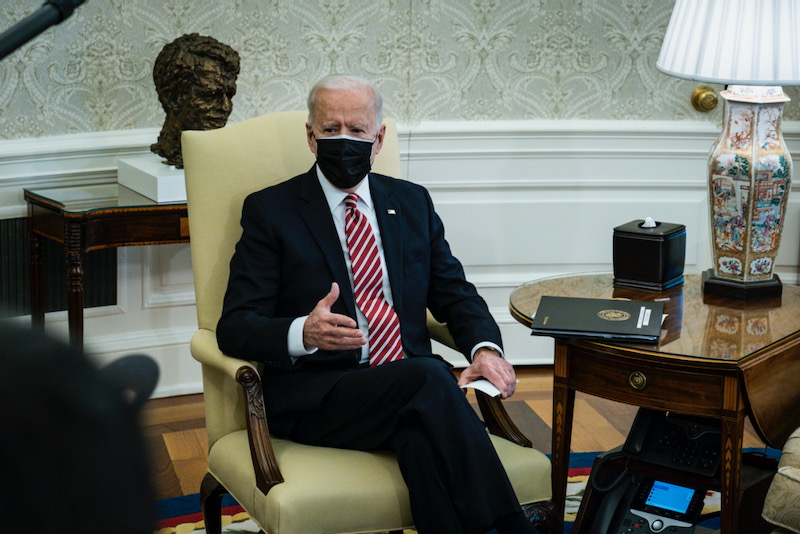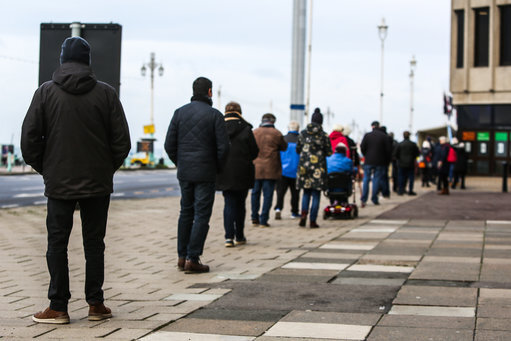At present I am waiting for my daughter’s Covid vaccination appointment. My daughter, now an adult, has profound severe multiple disabilities. She cannot tell me if she feels ill or in pain, and certainly not if she has lost her sense of smell. Like many people with disabilities, especially those with learning disabilities, when it comes to health and social care it is easy for my daughter to fall through the gaps.
The gaps have been there long before Covid, but it seems that we have difficulties in learning from clear evidence presented in previous reports and inquiries. Being Disabled in Britain, a 2017 report into disability inequality published by the Equality and Human Rights Commission highlighted failures to adequately diagnose, treat and prevent comorbid physical health conditions in people with learning disability, resulting in a greater chance of dying prematurely. Dying from preventable and treatable conditions. Dying some twenty years before their non-disabled peers.
Failure to collect data about health outcomes for people with learning disabilities made it difficult to assess the extent of inequalities or even to identify people who need extra support. “Do not attempt resuscitation” notices were routinely being placed on the files of disabled people without their knowledge or consent simply on the grounds of disability. Discriminatory attitudes and lack of expertise, failure to make reasonable adjustments, and diagnostic overshadowing all contributed to worse health outcomes. No wonder some people with disabilities, their families and carers thought that the NHS did not fully understand or respect people with disabilities. Sounds familiar? There were many positive responses to Being Disabled in Britain and significantly the NHS pledged that it would work for people with learning disabilities to ensure that all vaccination programmes were designed to support a narrowing of health inequalities. However, rebuilding trust takes time.
Then came Covid. The impact of Covid-19 on people with learning disabilities goes beyond treatment for the illness itself with delays in routine healthcare, restricted visiting in care homes, virtual consultations, people stuck in inappropriate facilities, lifelines of social and therapeutic activities cut. Additionally, doctors are facing challenging decisions, especially when it comes to prioritising treatment. Guidance to doctors from the BMA states that a disability in itself should not be used as a reason to withhold treatments, unless it is associated with worse outcomes and a lower chance of survival. However, if the statistics already demonstrate that people with disabilities die on average about twenty years earlier than non-disabled people, then disability is already associated with worse outcomes. The BMA comment that the presence of a learning disability would “almost certainly not” be a clinically relevant factor leaves enough doubt to trouble an already concerned group of people, especially when prioritisation decisions for people lacking capacity to make their own decisions may no longer be made in the person’s ‘best interests’. Families are afraid that their loved ones will be a low priority, will be denied access to life-saving treatment, or will die alone and confused in hospital. Statistics report that the risk of death involving Covid-19 is nearly six times greater for people with learning disabilities, and these are young people.
The right to healthcare flows from the dignity of the human person and as a matter of justice treatment decisions must be based on objective and transparent criteria applied consistently, not on disability or perceived worthwhileness of a person’s life.
All people with and without disabilities have the right to appropriately and clinically indicated treatment, to basic care, to palliative care and pain relief, to spiritual care and where needed, to care in bereavement. In his message for the World Day of the Sick 2021, Pope Francis talks about how the pandemic has highlighted existing inequalities and inefficiencies in the care of vulnerable people. He also points to the dedication and generosity of healthcare professionals in responding to this crisis. In the Christian tradition care of the sick is based on relationships of trust, a covenant between those in need of care and those who provide that care. This trust is placed in a community that leaves no one behind. Is that so difficult to learn?
Dr Pia Matthews is a Senior Lecturer St Mary’s University.



 Loading ...
Loading ...
What do you think?
You can post as a subscriber user ...
User comments (0)